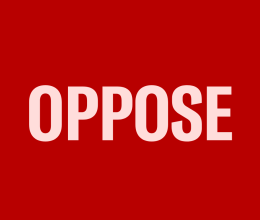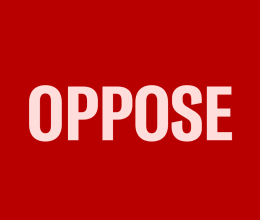
Public school dollars do not belong in private schools. Some past legislation is currently blocked in court, but lawmakers will likely try in 2023 to divert even more public school funding to unaccountable, private and charter schools.
House Bill 9, passed in 2022, builds on similar legislation passed in 2021 (House Bill 563) that is currently blocked in state court. HB563 would reduce funding by $25M annually, harm Kentucky students, and reduce transparency around how your tax dollars are spent. It would also pave the way for school vouchers statewide.
HB9 expands on HB563 by allowing vouchers in all Kentucky counties, increasing the number of people who could use them, and doubling the amount of money taken from public schools to $50M.
School vouchers directly harm students by reducing funding for education. They also reduce transparency around how your tax dollars are spent. Private schools are not subject to the same open records laws that keep public institutions accountable to taxpayers. This also means your tax dollars could be used to support private institutions that are not required to ensure all students have equal access regardless of their race, gender, sexual orientation, or ability.
Like we said in 2021 and 2022, HB563 was bad enough for public education all on its own, but could be used to pass even worse legislation in the future. Despite being blocked in court, lawmakers used HB563 as the first step in implementing a school voucher system statewide with HB9 and are likely to continue in 2023. School vouchers allow people to take money from directly public schools to send their children to private schools.
Research shows bills like this would actually benefit students from higher-income families and leave students from low-income families behind. Even worse, school vouchers like those implemented in Indiana have proven to grow racial and economic disparities.
Kentucky’s public schools need more support, not less. Our shared public dollars should support Kentucky’s public school students, not private institutions.
Bill Movement (Current 2023 Legislative Session):
- Introduced: N/A
- Passed Committee: N/A
- Passed House or Senate: N/A
- Accepted by House or Senate: N/A
- Passed Committee: N/A
- Passed House or Senate: N/A
- Sent to Governor: N/A
- Action by Governor: N/A
House Bill 9 Bill Movement (2022):
- Introduced: 3/1/22
- Passed House Committee: 3/22/22
- Passed House: 3/22/22 (Vote: 51-46)
- Accepted by Senate: 3/23/22
- Passed Senate Committee: 3/29/22
- Passed Senatewith amendments: 3/29/22 (Vote: 22-14)
- Sent to Governor: 3/29/22
- Vetoed by Governor: 4/7/22
- Action by General Assembly (Lawmakers can override a veto with a constitutional majority of 51 votes in the House and 20 votes in the Senate).
- Veto overridden in House: 4/13/22 (Vote: 52-46)
- Veto overridden in Senate: 4/13/22 (Vote: 22-15)
House Bill 563 Bill Movement (2021):
- Introduced: 2/23/21
- Passed House Committee: 3/11/21
- Passed House: 3/11/21 (Vote: 51-45)
- Accepted by Senate: 3/12/21
- Passed Senate Committee: 3/16/21
- Passed Senate with amendments: 3/16/21 (Vote: 21-15)
- Passed House with Senate amendments: 3/16/21 (Vote: 48-47)
- Sent to Governor: 3/16/21
- Vetoed by Governor: 3/24/21
- Action by General Assembly (Lawmakers can override a veto with a constitutional majority of 51 votes in the House and 20 votes in the Senate).
- Veto overridden in House: 3/29/21 (Vote: 51-42)
- Veto overridden in Senate: 3/29/21 (Vote: 23-14)
